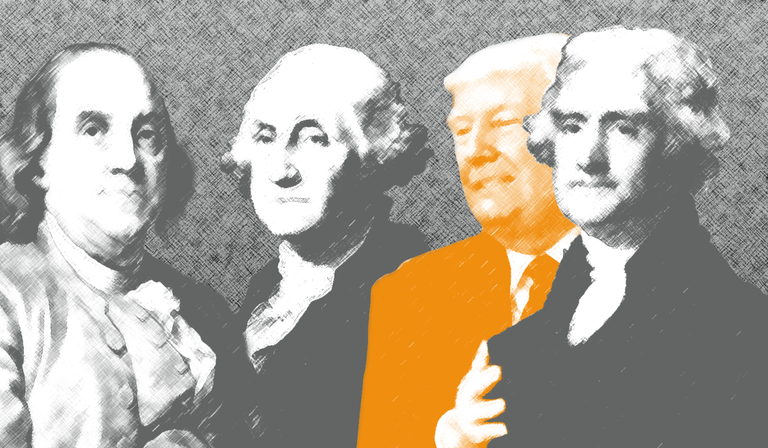Like many US academics living abroad, I regularly travel between the United States and my adopted home country—for conferences, holidays, and family visits. Until now, I have never been the least bit afraid to set foot on US soil. The thought of fearing for my safety upon landing in Chicago, as I will next month, would have been absurd. No longer.
I’ve never before imagined that I might be stopped, harassed, detained—not because I’ve done anything wrong, but because of who I am and what I write. But three months of the new Trump administration has changed that. What if they have flagged me—a liberal academic, living in Latin America, a frequent public critic of this government—for special treatment? What if I, too, am bundled off in an unmarked van? All at once, challenging the state seems to invite real danger. Each of us must now pick our way through a novel landscape of risk. Should I leave my iPhone behind and carry a burner phone instead? Should my husband and I reconsider a planned sabbatical in California next year?
And if I—a white, cisgender, law-abiding citizen of European descent—am afraid, what about those with more visible differences, more vulnerable legal statuses? What about my Chilean husband, a non-citizen? What about trans kids, undocumented migrants? The fear I feel reflects a rapid, catastrophic shift in the US from the rule of law to rule by thuggery and fiat.
If this seems hysterical, think again. Think of the immigrants now rotting in El Salvador’s CECOT prison without trial; of academics detained or deported without legal cause; the judiciary sidelined; and the growing list of independent institutions—universities, the media, law firms—attacked and intimidated. Or of Trump suggesting that his pal Nayib Bukele, self-proclaimed dictator of El Salvador, build more prisons for the “homegrowns” Trump wants to jail there.
The idea that one’s freedom depends not on the law but on the whims of powerful men is an elemental fear, one that republican thinkers from Cicero to Montesquieu to the American founding fathers have always sought to eliminate. In a free republic, liberty is the security of knowing you are not subject to the arbitrary, uncontrolled power of those who rule over you.
Thomas Jefferson argued that freedom requires structural protection from rulers’ caprice. In Federalist No. 47, James Madison emphasises that to be free is to be governed not by men but by laws. And so when the state itself acts lawlessly, citizens stop being citizens in the republican sense. They become the subjects of a despot, obliged to ingratiate themselves with those in power to get by.
This is what separates republics from autocracies. In an autocracy, the law is whatever the leader says it is. In a republic, law constrains power. It protects the individual from wrongful harm and from the fear of such harm—from having to live in a defensive crouch, watching one’s words and movements, wondering when and where the hammer of the state will fall next.
Reacting to the horrors of the mid-20th century, Hannah Arendt wrote: “The first essential step on the road to total domination is to kill the juridical person in man.” That is, to strip individuals of the protections of law, to render them invisible to the courts. Once that happens, we no longer live in a system of rights and liberties, but in one of favours—granted or withdrawn at will.
What happens to people living in such a system? They shrink. They isolate. They hide. The capacity for collective action and public courage erodes. And with it, the lifeblood of democratic societies.
My Chilean husband was 16 when Pinochet fell. He remembers dictatorship—the cowed silence of a population that lives in fear of its own government. I never expected to feel anything like that on home soil. I’ve always taken pride in telling our children that in the United States the rule of law matters, that no one, not even a president, is above it. What do I say now?
The US has veered into illiberalism before—Jim Crow, the Red Scare, the internment of Japanese Americans—times in which republican liberty was reserved for some, while brutal state domination crushed others. But our eventual recovery from these historical horrors should not make us complacent.
Liberal democracy survives on courage—on citizens insisting that freedom, as security against domination, means something. And that no leader, no matter how cruel or powerful, gets to take it away. We must relearn what the founders knew: that freedom from fear is the bedrock of a free society. We must speak up—now—and fight with everything we have to defend it.













